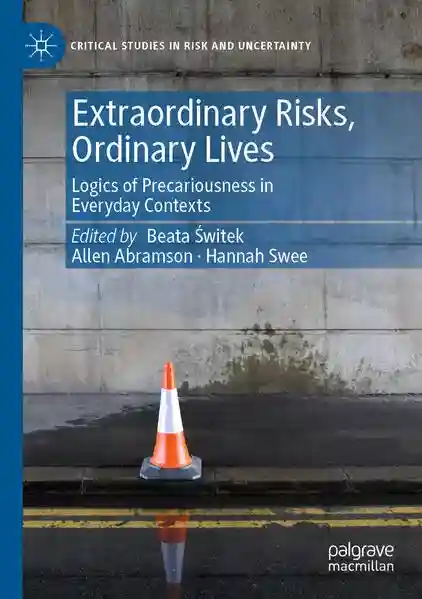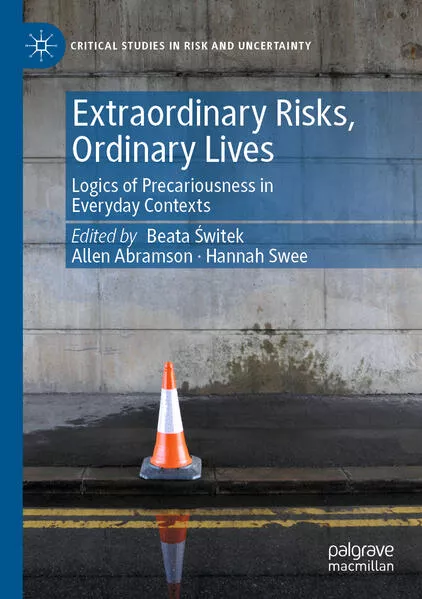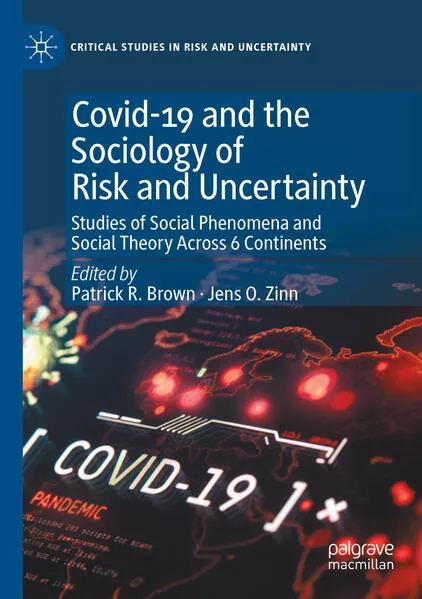Chronologie aller Bände (1 - 2)

Die Reihenfolge beginnt mit dem Buch "Extraordinary Risks, Ordinary Lives". Wer alle Bücher der Reihe nach lesen möchte, sollte mit diesem Band von Beata Świtek beginnen. Der zweite Teil der Reihe "Covid-19 and the Sociology of Risk and Uncertainty" ist am 09.06.2023 erschienen. Die Reihe umfasst derzeit 2 Bände. Der neueste Band trägt den Titel "Covid-19 and the Sociology of Risk and Uncertainty".
- Anzahl der Bewertungen für die gesamte Reihe: 0
- Ø Bewertung der Reihe: 0
Diese Reihenfolge enthält 2 unterschiedliche Autoren.
- Autor: Świtek, Beata
- Anzahl Bewertungen: 0
- Ø Bewertung:
- Medium: Buch
- Veröffentlicht: 12.04.2023
- Genre: Politik
Extraordinary Risks, Ordinary Lives
This book untangles the relationship between expert categorisations of risk and the on-the-ground experiences of untrained ‘ordinary’ people who may be routinely subjected to significant danger in a variety of extraordinary contexts. It considers political, ethical and moral dimensions of risk and calls for more targeted ethnographic research, designed to reveal how grass-roots risk dispositions and practice intersect with official discourses, individual agency and community resilience.
- Autor: Brown, Patrick R.
- Anzahl Bewertungen: 0
- Ø Bewertung:
- Medium: Buch
- Veröffentlicht: 09.06.2023
- Genre: Politik
Covid-19 and the Sociology of Risk and Uncertainty
This book provides a global perspective on COVID-19, taking the heterogenous realities of the pandemic into account. Contributions are rooted in critical social science studies of risk and uncertainty and characterized by theoretical approaches such as cultural theory, risk society theory, governmentality perspectives, and many important insights from ‘southern’ theories.
Some of the chapters in the book have a more theoretical-conceptual emphasis, while others are more empirically oriented – but all chapters engage in an insightful dialogue between the theoretical and the empirical, in order to develop a rich, diverse and textured picture of the new challenge the world is facing and responding to. Addressing multiple levels of responses to the coronavirus, as understood in terms of, institutional and governance policies, media communication and interpretation, and the sense-making and actions of individual citizens in their everyday lives, the book brings together a diverse range of studies from across 6 continents. These chapters are connected by a common emphasis on applying critical theoretical approaches which help make sense of, and critique, the responses of states, organisations and individuals to the social phenomena emerging amid the Corona pandemic.
